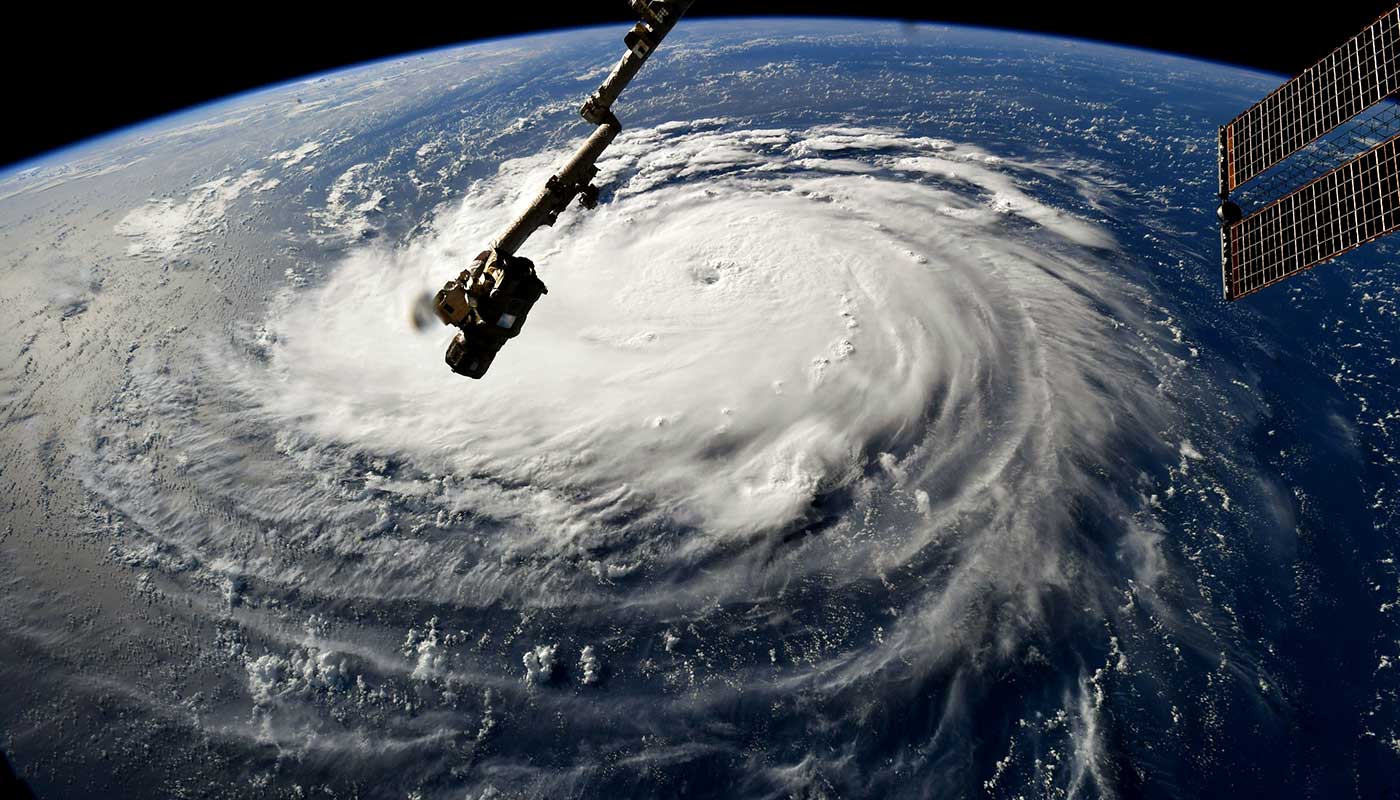Should we stop calling hurricanes natural disasters?
Climate experts argue phrase is factually incorrect and absolves humans of responsibility

A free daily email with the biggest news stories of the day – and the best features from TheWeek.com
You are now subscribed
Your newsletter sign-up was successful
As Hurricane Michael bears down on North and South Carolina after devastating the Florida coast, experts argue that it is time to change the way we talk about these deadly storms.
Earlier this year, the disaster risk reduction organisation DRR Dynamics urged journalists to stop using the term natural disaster when talking about these events.
The description is “factually incorrect and misleading,” they said in a public letter, as it suggests there is nothing humans can do to reduce the risks.
The Week
Escape your echo chamber. Get the facts behind the news, plus analysis from multiple perspectives.

Sign up for The Week's Free Newsletters
From our morning news briefing to a weekly Good News Newsletter, get the best of The Week delivered directly to your inbox.
From our morning news briefing to a weekly Good News Newsletter, get the best of The Week delivered directly to your inbox.
By blaming nature for the event, reporters are also absolving “powerful decision-makers of responsibility for allowing or forcing people to live in vulnerable conditions,” researchers argued.
Kerry Emanuel, a professor of atmospheric science at MIT and a global expert on hurricanes, agrees. “The phrase ‘natural disaster’ is an attempt to lay blame where blame really doesn’t rest,” she tells CNN.
“The best scientific info we have now is that the probabilities of these intense hurricanes are going up in many places because of global warming,” Emanuel argues.
Hurricanes occur naturally, but global warming has caused water and air temperatures to rise by 1C over the past 100 years – conditions that help increase the frequency and intensity of storms. Rising sea levels also increase the height of storm surges, as well as the flood risk in coastal communities.
A free daily email with the biggest news stories of the day – and the best features from TheWeek.com
A landmark report published by the UN’s Intergovernmental Panel on Climate Change (IPCC) this week laid bare the extreme damage humans have done – and continue to do – to the planet.
“The climate is changing, and that means that weather is impacted by the current state of the climate. There's a human fingerprint on that,” Kevin Reed, an assistant professor in the School of Marine and Atmospheric Sciences at Stony Brook University. "So, to some extent, there's a human fingerprint on individual weather events."
Inadequate infrastructure and disaster preparedness have also worsened the effects of hurricanes. This, too, “has nothing to do with the natural world that humans inhabit, and everything to do with policymaking decisions that those humans make,” Seth Millstein writes for Bustle.
Instead of hanging on to the term “natural disaster”, some experts argue in favour of simply referring to hurricanes as “disasters”.
But Katharine Hayhoe, a climate scientist at Texas Tech, suggests that we refer to them as “what used to be entirely natural disasters... now amplified or exacerbated by human-induced change.”
“I know it's a mouthful,” she says. “But I think it's worth it, because it addresses the misconception and presents the facts, all in one.”
-
 The environmental cost of GLP-1s
The environmental cost of GLP-1sThe explainer Producing the drugs is a dirty process
-
 Greenland’s capital becomes ground zero for the country’s diplomatic straits
Greenland’s capital becomes ground zero for the country’s diplomatic straitsIN THE SPOTLIGHT A flurry of new consular activity in Nuuk shows how important Greenland has become to Europeans’ anxiety about American imperialism
-
 ‘This is something that happens all too often’
‘This is something that happens all too often’Instant Opinion Opinion, comment and editorials of the day
-
 The plan to wall off the ‘Doomsday’ glacier
The plan to wall off the ‘Doomsday’ glacierUnder the Radar Massive barrier could ‘slow the rate of ice loss’ from Thwaites Glacier, whose total collapse would have devastating consequences
-
 Can the UK take any more rain?
Can the UK take any more rain?Today’s Big Question An Atlantic jet stream is ‘stuck’ over British skies, leading to ‘biblical’ downpours and more than 40 consecutive days of rain in some areas
-
 As temperatures rise, US incomes fall
As temperatures rise, US incomes fallUnder the radar Elevated temperatures are capable of affecting the entire economy
-
 The world is entering an ‘era of water bankruptcy’
The world is entering an ‘era of water bankruptcy’The explainer Water might soon be more valuable than gold
-
 Climate change could lead to a reptile ‘sexpocalypse’
Climate change could lead to a reptile ‘sexpocalypse’Under the radar The gender gap has hit the animal kingdom
-
 The former largest iceberg is turning blue. It’s a bad sign.
The former largest iceberg is turning blue. It’s a bad sign.Under the radar It is quickly melting away
-
 How drones detected a deadly threat to Arctic whales
How drones detected a deadly threat to Arctic whalesUnder the radar Monitoring the sea in the air
-
 ‘Jumping genes’: how polar bears are rewiring their DNA to survive the warming Arctic
‘Jumping genes’: how polar bears are rewiring their DNA to survive the warming ArcticUnder the radar The species is adapting to warmer temperatures